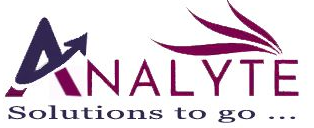Tax Preparation
Tax Review
Tax Planning
Tax Consulting
If you are a CPA firm in the US, you might be facing challenges in handling the tax preparation work for your clients. Tax preparation is a complex and time-consuming task that requires expertise and accuracy. You might not have enough resources or time to handle the tax preparation work efficiently and effectively.
That’s why outsourcing tax preparation services to a reliable and experienced offshore accounting company can be a smart solution for you. Outsourcing tax preparation services can help you save time, money, and hassle. You can focus on your core competencies and provide better value-added services to your clients.
Outsourcing tax preparation services can also help you improve the quality and accuracy of your tax work. You can leverage the skills and knowledge of professional tax preparers who use the latest technology and software to prepare your tax returns. You can also avoid errors and penalties that might arise from incorrect or incomplete tax filing.
Outsourcing tax preparation services can also help you scale up your business and handle more clients during the peak tax season. You can access a flexible and scalable team of tax preparers who can handle any volume of work with a quick turnaround time. You can also benefit from the time zone difference and get your work done overnight.
If you are a business owner, you may be wondering which type of tax return you should file for your entity. There are three main options: Partnership (1065), S Corporation (1120-S), and Corporation (1120). Each one has its own advantages and disadvantages, depending on your situation.
A Partnership (1065) is a pass-through entity, which means that the income and losses of the business are reported on the partners’ individual tax returns. The partnership itself does not pay any income tax, but it must file a Form 1065 to report its income, deductions, credits, and distributions to the IRS and the partners. Partnerships are flexible in terms of how they allocate profits and losses among the partners, but they also expose the partners to unlimited liability for the debts and obligations of the business.
An S Corporation (1120-S) is also a pass-through entity, but it is treated as a corporation for legal purposes. This means that the shareholders of an S corporation have limited liability for the debts and obligations of the business, unlike partners in a partnership. However, an S corporation can only have up to 100 shareholders, who must be U.S. citizens or residents, and it can only have one class of stock. An S corporation must file a Form 1120-S to report its income, deductions, credits, and distributions to the IRS and the shareholders.
A Corporation (1120) is a separate legal entity that pays income tax on its own profits. A corporation must file a Form 1120 to report its income, deductions, credits, and taxes to the IRS. A corporation can have unlimited shareholders, who can be foreign or domestic, and it can have multiple classes of stock. A corporation can also retain some of its earnings as retained earnings, which can be reinvested in the business or distributed as dividends to the shareholders. However, dividends are subject to double taxation, meaning that they are taxed once at the corporate level and again at the individual level when received by the shareholders.
We support best professional tax softwares:
ProConnect, Drake, ProSeries, Turbo Tax, Gosystem, Etc.,
